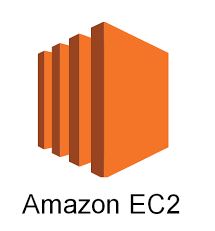Features of AWS EC2 that Azure Virtual Machines Do Not Have or Have Less Comprehensive Versions Of
- Instance Variety and Flexibility
- AWS EC2: Offers a broader range of instance types, including specialized instances for machine learning (Inf1, P3), ARM-based instances (Graviton2), and macOS instances.
- Azure Virtual Machines: Does not offer ARM-based instances or macOS instances.
- Spot Instances and Savings Plans
- AWS EC2: Provides Spot Instances for utilizing unused EC2 capacity at a significant discount and Savings Plans for flexible pricing that can lead to cost savings across multiple services.
- Azure Virtual Machines: Offers Spot VMs and Reserved Instances, but AWS’s pricing models are often seen as more flexible and extensive.
- Elastic Graphics
- AWS EC2: Supports Elastic GPUs that allow you to attach low-cost GPU resources to your instances for graphics-intensive workloads.
- Azure Virtual Machines: Does not have a direct equivalent to Elastic GPUs.
- Dedicated Hosts and Capacity Reservations
- AWS EC2: Provides Dedicated Hosts, which give you physical servers fully dedicated to your use, and Capacity Reservations to ensure that you always have access to the capacity you need.
- Azure Virtual Machines: Offers Dedicated Hosts, but AWS’s offerings are often seen as more flexible and easier to manage.
- Enhanced Networking with Elastic Network Adapter (ENA)
- AWS EC2: Uses Elastic Network Adapter (ENA) to provide high-performance network capabilities, including higher bandwidth and lower latency.
- Azure Virtual Machines: Has high-performance networking options, but the capabilities and performance may not match those of ENA.
- Auto Scaling Groups with Predictive Scaling
- AWS EC2: Provides Auto Scaling Groups with predictive scaling capabilities that use machine learning to forecast traffic and adjust capacity accordingly.
- Azure Virtual Machines: Supports auto-scaling, but predictive scaling using machine learning is less advanced.
- Nitro System
- AWS EC2: The AWS Nitro System is a collection of building blocks that offloads virtualization functions to dedicated hardware and software, enhancing performance and security.
- Azure Virtual Machines: Does not have an equivalent to the AWS Nitro System.
- Broad Integration with Other AWS Services
- AWS EC2: Seamlessly integrates with a wide range of AWS services like Amazon S3, Amazon RDS, AWS Lambda, and AWS CloudFormation, offering a cohesive ecosystem.
- Azure Virtual Machines: Integrates well with Azure services, but the breadth and depth of AWS integrations provide more flexibility and power.
- Bare Metal Instances
- AWS EC2: Offers Bare Metal Instances, providing direct access to the underlying hardware without virtualization, suitable for workloads requiring access to hardware features.
- Azure Virtual Machines: Does not offer bare metal instances.
- Instance Metadata Service Version 2 (IMDSv2)
- AWS EC2: Provides enhanced security for accessing instance metadata with Instance Metadata Service Version 2 (IMDSv2), which includes improved protection against SSRF attacks.
- Azure Virtual Machines: Has an instance metadata service, but IMDSv2’s security enhancements are unique to AWS.
Read more on aws

![AWS Lambda : Export all AWS Lambda function with code in a single go using AWS CLI [For backup]](https://www.freshers.in/wp-content/uploads/2021/01/aws_-lambda.png)





